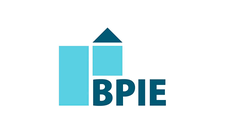Search eceee proceedings
Funding measured energy savings: first findings on the performance-based "Energy Savings Meter" funding scheme
Panel: 2. Policy: governance, design, implementation and evaluation challenges
This is a peer-reviewed paper.
Authors:
Uta Weiß, Ifeu Institute for Energy and Environmental Research, Germany
Mandy Werle, ifeu Institute for Energy and Environmental Research, Germany
Martin Pehnt, ifeu Institute for Energy and Environmental Research, Germany
Michael Blohm, Federal Ministry for Economic Affairs and Energy, Germany
Tim Chmella, Federal Office for Economic Affairs and Export Control, Germany
Maximilian Becker, Federal Office for Economic Affairs and Export Control, Germany
Jonas Geissler, Federal Office for Economic Affairs and Export Control, Germany
Arne Grein, Ökotec Energiemanagement GmbH, Germany
Filip Milojkovic, co2online gGmbH, Germany
Abstract
German energy policy aims at halving the country’s primary energy demand by 2050: an objective which should translate into more significant reductions in final energy demand than the limited reductions observed in the past. Although energy reduction potentials are high, they are fragmented and therefore hardly accessible to energy service companies. At the same time, digitalization offers new opportunities to deliver energy services at low costs. However, it appears that current digital services are not yet linked to energy savings as they could be. Well-conceived IT-based energy services might visualize energy consumption and save both costs and energy. Moreover, energy savings might further be promoted if customers received direct offers to carry out energy saving measures or to apply for funding.
Hence, the German Federal Government has launched a pilot scheme for an innovative IT-based energy savings programme in 2016 – the “energy savings meter” – which the authors are currently accompanying and evaluating. Eligible companies propose “smart” energy monitoring and savings systems to end customers in the residential, commercial or industrial sector. As the overall energy consumption is measured, the programme addresses absolute energy savings and also taps savings owing to behavioural patterns. As a truly performance-based support scheme, it stands for a policy development favouring actual savings over deemed savings.
The paper describes the evaluation concept to explore this funding model which rewards measured energy savings rather than energy efficiency measures with their uncertain outcome. It analyses the current market situation of digital services for energy efficiency and how current services would have to evolve in order to correspond to “energy savings meters”. The paper finally discusses early findings from the funding programme which stem from both funding requests and the market experience of the participating companies.
Downloads
Download this paper as pdf: 2-214-17_Weiss.pdf
Download this presentation as pdf: 2-214-17_Weiss_presentation.pdf
Panels of
1. Foundations of future energy policy
2. Policy: governance, design, implementation and evaluation challenges
4. Mobility, transport, and smart and sustainable cities
5. Buildings and construction technologies and systems
6. Buildings policies, directives and programmes
7. Appliances, products, lighting and ICT
8. Monitoring and evaluation: building confidence and enhancing practices























